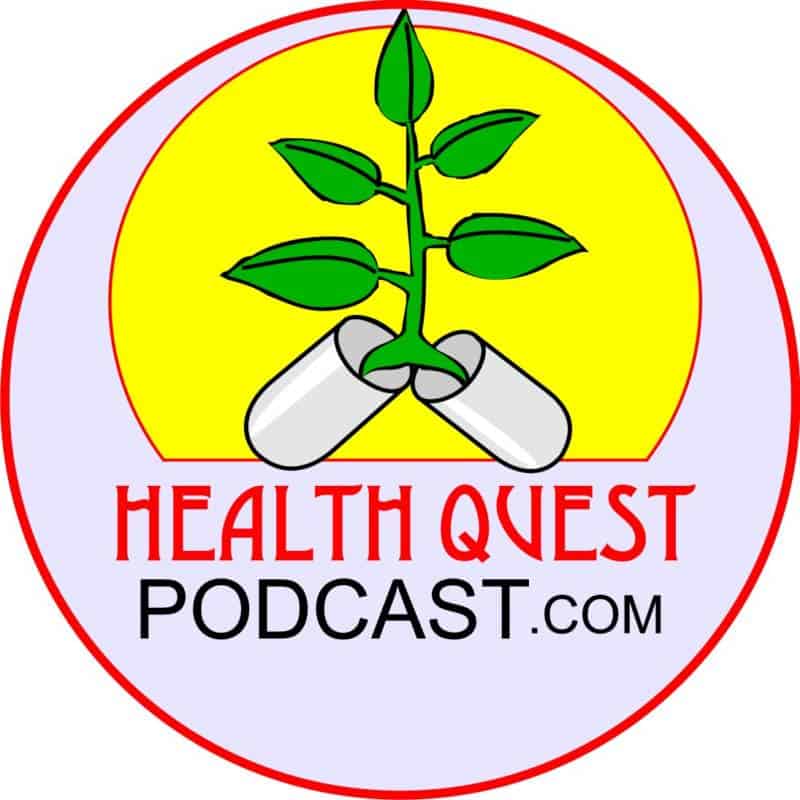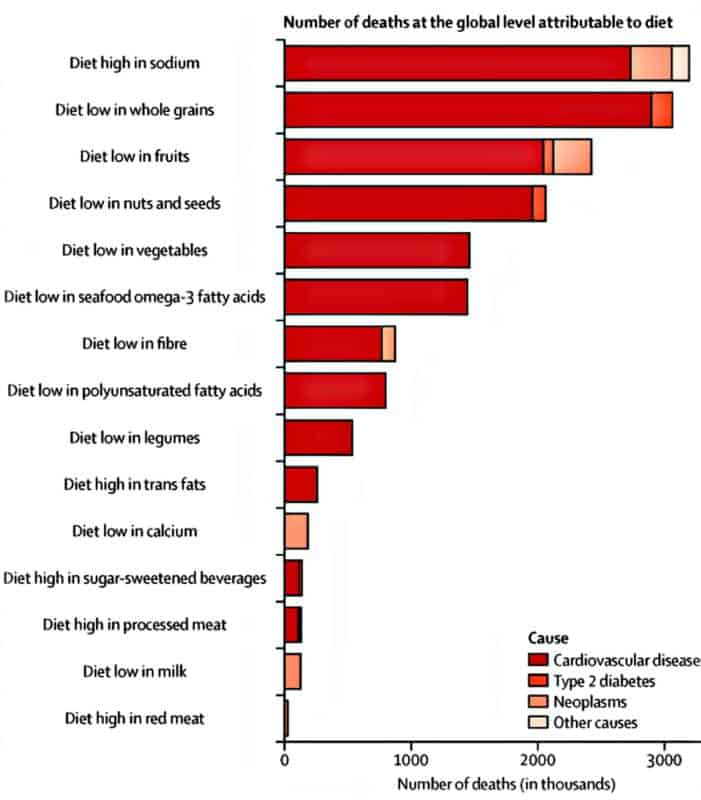
 It has long been a commonly held belief that eating the Standard American Diet (SAD) contributes to much disability and death. The consumption of sugar, salt, trans fats, red meat and processed meat have all been implicated in health challenges. Most of us have assumed that these foods are not healthy. The shocker is that these foods are at the bottom of the list of classes of foods that do us in. With the exception of sodium consumption, which is the number 1 factor, the other “bad” foods contribute far less to death and disability that we previously assumed.
It has long been a commonly held belief that eating the Standard American Diet (SAD) contributes to much disability and death. The consumption of sugar, salt, trans fats, red meat and processed meat have all been implicated in health challenges. Most of us have assumed that these foods are not healthy. The shocker is that these foods are at the bottom of the list of classes of foods that do us in. With the exception of sodium consumption, which is the number 1 factor, the other “bad” foods contribute far less to death and disability that we previously assumed. In this interview with Jolie Root, we are discussing a recent study that was published in The Lancet medical journal. I want to thank Jolie for bringing this study to my attention and to thank Carlson Laboratories for sponsoring this interview.
In this interview with Jolie Root, we are discussing a recent study that was published in The Lancet medical journal. I want to thank Jolie for bringing this study to my attention and to thank Carlson Laboratories for sponsoring this interview.The title of the study is “Health effects of dietary risks in 195 countries, 1990–2017: a systematic analysis for the Global Burden of Disease Study 2017”. This is a 27 year study including 195 countries. That fact alone is impressive. The results of the study are incredibly impactful. Jolie and I both consider this a paradigm shifting study, for us at least. Its impact on the rest of the world remains to be seen.

 This study looked at diets around the world to determine what dietary factors were most associated with death and disability. If it’s not the “bad” foods we eat that kills us, what is it? This study reveals that it is the lack of “good” foods that does us in. Let that sink in. The results of this study give us the relative impact of the foods that we don’t consume. If you want to be healthier, then eat “good” foods and a variety of them. The “good” must displace the “bad” foods.
This study looked at diets around the world to determine what dietary factors were most associated with death and disability. If it’s not the “bad” foods we eat that kills us, what is it? This study reveals that it is the lack of “good” foods that does us in. Let that sink in. The results of this study give us the relative impact of the foods that we don’t consume. If you want to be healthier, then eat “good” foods and a variety of them. The “good” must displace the “bad” foods.









